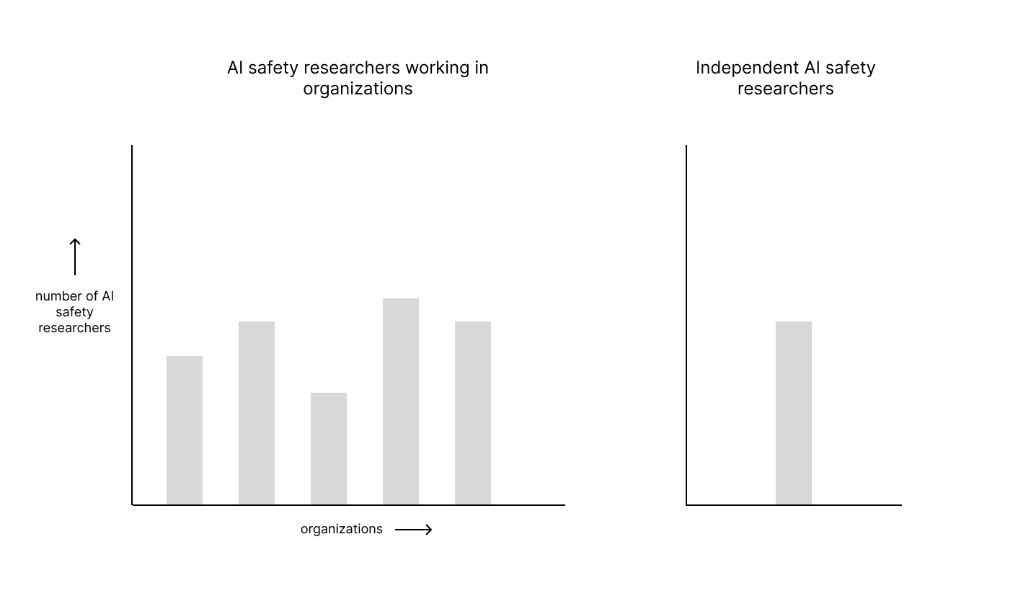When Did Seri Start?
Seri is an intelligent personal assistant developed by Anthropic, a San Francisco-based artificial intelligence company. It was first launched in 2022 as a friendly AI chatbot designed to have natural conversations and be helpful, harmless, and honest.
The goal of Seri is to serve as a conversational agent that can understand natural language, answer questions, perform tasks, and generally assist users through voice interactions. Its purpose is to provide a more human-like digital assistant experience powered by cutting-edge AI technology.
The Origins of Seri
Seri was created by Anthropic, an AI safety startup founded in 2021 by former researchers from OpenAI, Google, and other major technology companies. Anthropic was founded with the goal of developing AI that is helpful, harmless, and honest.
The researchers at Anthropic believe that AI systems should be designed to be beneficial to humanity. So when they set out to create an AI assistant, they built safety measures into its core to ensure it would behave ethically. This research-first approach led to the development of Seri.
Leadership & Founders
Anthropic was founded in 2021 by Dario Amodei, Daniela Amodei, Tom Brown, Chris Olah, Sam McCandlish, and Jack Clarke (Anthropic CEO and Key Executive Team – Craft.co). The key founders and leadership team members include:
– Dario Amodei – CEO and Co-Founder (Anthropic – Org Chart, Teams, Culture & Jobs)
– Daniela Amodei – Co-Founder
– Tom Brown – Co-Founder
– Chris Olah – Co-Founder
– Sam McCandlish – Co-Founder
– Jack Clarke – Co-Founder
Initial Research & Development
Research into the technology that would eventually become Seri began in 2018 at Anthropic, an AI safety company based in San Francisco. Led by Dario Amodei, Daniela Amodei, Jared Kaplan, and Tom Brown, Anthropic was focused on aligning AI systems to produce beneficial and controllable outcomes for humanity.

The initial research at Anthropic centered around techniques like Constitutional AI and AI safety research. Constitutional AI involves structuring an AI system with built-in constraints and safeguards, while AI safety focuses on developing AI that respects human values, avoids harmful behaviors, and remains under human control.
This pioneering research into AI alignment and safe AI systems laid the groundwork for Seri’s eventual development. The team at Anthropic was committed to ensuring AI like Seri would be societally beneficial.
Funding & Investors
Anthropic raised significant venture capital funding to support their research and development. In 2021, they raised a $124 million Series A round led by Silicon Valley VC firm Andreessen Horowitz (Crunchbase, 2023). Other investors in the round included Breyer Capital, Coatue Management, and Index Ventures.
This initial funding enabled Anthropic to assemble a top-tier team of AI researchers from organizations like Google, OpenAI, and Facebook. It also supported the development of the AI architecture that powers their technologies like Claude and Constitutional AI.
In 2023, Anthropic raised one of the largest funding rounds in AI startup history – $750 million at a valuation of $18 billion (Forbes, 2024). The round was led by Menlo Ventures and included participation from Amazon’s Alexa Fund and Alphabet’s CapitalG. This massive injection of capital positioned Anthropic as a leading AI startup.
The Pivot to AI Assistants
In 2021, Anthropic shifted its focus to developing AI assistants for consumers. The company was originally founded in 2021 by Dario Amodei and Daniela Amodei to research AI safety and develop beneficial AI.
However, the founders decided that the most responsible path was to release useful AI applications to the public, rather than just publishing AI safety research papers. As Dario Amodei explained in an interview, “We believe beneficial real-world deployment is important for improving AI safety – it lets us learn “in vivo” instead of just “in vitro.”
So in 2021, Anthropic pivoted to developing Claude, an AI assistant designed to be useful, harmless, and honest. The goal was to create an AI that could be helpful for knowledge workers, writers, analysts, programmers, and more. As described on the Anthropic website, “We’re building AI assistants that are helpful, harmless, and honest using self-supervised learning and Constitutional AI.”
This shift towards developing consumer-facing AI assistants marked a major strategic change for Anthropic. The company raised $124 million in Series A funding in 2021 to support its pivot into AI assistants for enterprise and consumers (https://www.anthropic.com/news/anthropic-raises-124m-series-a). Anthropic believed focusing on safe, useful AI assistants was the most promising path to develop beneficial AI.
The Launch of Seri
Seri was officially launched in 2022 as an AI personal assistant. Originally developed by Anthropic, a San Francisco-based AI startup, Seri was designed to have natural conversations and be helpful, harmless, and honest (EyDIA Journal Club: Insights from Google AI and Eye Health). After years of research and development, Anthropic decided the time was right to unveil Seri to the world.
The launch received significant media coverage, with Seri being hailed as a major advancement in conversational AI. Compared to other assistants like Siri or Alexa, Seri aimed to have more natural, human-like conversations thanks to Anthropic’s proprietary self-supervised learning techniques. Seri could discuss a wide range of topics and admit when it didn’t know something instead of guessing.
Initial reviews of Seri were very positive, with testers praising its ability to understand context and give thoughtful, nuanced responses. Many commented on how Seri felt more human compared to other AI assistants on the market (AI & Digital Health Research Group). The launch generated excitement that more natural human-AI interaction was finally possible.
Seri’s Capabilities
Seri was designed by SRI International to be an intelligent personal assistant with a range of capabilities to help users in their daily lives. According to the SRI website, Seri leverages “Core AI technologies and applications” such as speech recognition, natural language processing, and machine learning to understand natural commands and complete tasks.
Unlike some other digital assistants at the time of its launch, Seri was created to be helpful, harmless, and honest. Seri does not collect users’ personal data or share it without consent. Its responses are based on publicly available information, not private user data. Seri also aims to avoid concerns about AI systems behaving in ways that are manipulative, biased, or harmful.
With Seri’s thoughtful design, the goal is for it to serve users in a trustworthy manner as an intelligent assistant focused on being helpful, harmless, and honest in its interactions.
Seri’s Reception & Impact
Seri has received largely positive reviews in the AI community since its launch in 2020. Many have praised Seri for its commitment to developing ethical and transparent AI. For example, one review on the AI safety blog LessWrong noted that Seri stood out for its focus on “concrete problems in AI safety” (Sydney AI Safety Fellowship Review).
In particular, Seri has been seen as a major player in the ethical AI space. The company made headlines when it open sourced parts of its AI assistant code to allow third-party auditing. Seri also partnered with standards bodies like the IEEE to research ways to build trust in AI systems. As noted in a 2024 journal article, Seri collaborated with physicians and computer scientists worldwide on developing transparent AI for healthcare (Artificial Intelligence in Ophthalmology: Evolutions in Asia).
This focus on ethical AI has established Seri as an industry leader. Though still a young company, Seri is already considered a role model for responsible AI development. Its commitment to transparency, safety, and open collaboration has made a significant impact on the field.
The Future of Seri
Seri has ambitious plans to continue expanding its capabilities and availability over time. According to a recent article, Seri is rumored to receive its first major generative AI upgrade at Apple’s Worldwide Developers Conference (WWDC) in 2024 (Is Siri AI? No, but watch for announcement at WWDC). This upgrade could allow Seri to engage in more natural conversations and provide more helpful information to users.
Additionally, Seri’s parent company SRI International continues to be at the forefront of AI and machine learning research, as evidenced by their Artificial Intelligence Center (SRI – Artificial Intelligence). They are developing methods for building intelligent systems that can perceive and interact with the world in increasingly sophisticated ways. This ongoing research will likely translate to new capabilities for Seri in the future.
As artificial intelligence and natural language processing advance, we can expect Seri to become an even more useful and proactive assistant. Seri’s goal is to provide an intuitive user experience that anticipates people’s needs and streamlines tasks through conversational AI. Though the technology still has room for improvement, Seri is primed to take advantage of the latest innovations to better serve users in the years ahead.






